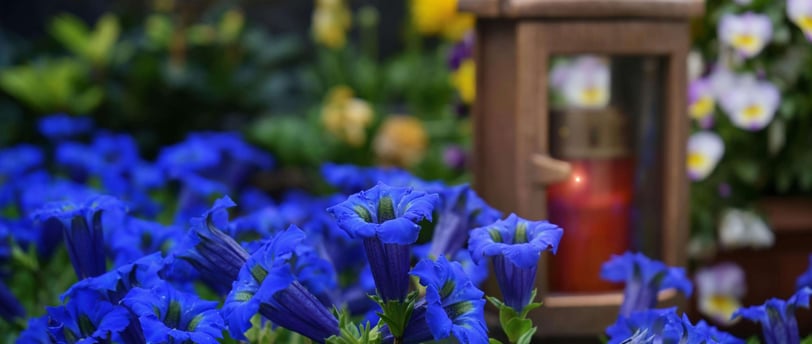Garden Care Basics
Learn essential garden care tips for healthy plants: soil, watering, pruning, pest control, and seasonal care. Cultivate a thriving, vibrant garden today.
8/13/20243 min read


Garden Care Basics: Essential Tips for a Thriving Garden
Gardening is more than just a hobby—it's a rewarding way to connect with nature, enhance your outdoor space, and enjoy the fruits of your labor. Whether you’re a seasoned gardener or a novice, understanding the fundamentals of garden care is crucial for cultivating a lush and vibrant garden. Here’s a guide to help you get started with the basics of garden care.
1. Know Your Soil
Importance: The foundation of any successful garden starts with the soil. Healthy soil provides the nutrients plants need to grow and thrive.
Tips:
Test Your Soil: Utilize a soil testing kit to evaluate the pH levels and nutrient composition of your soil. This will help you understand what amendments your soil might need.
Improve Soil Quality: Add organic matter such as compost, well-rotted manure, or peat moss to enhance soil fertility and structure.
2. Watering Wisely
Importance: Proper watering is essential for plant health. Both overwatering and underwatering can lead to problems like root rot or dehydration.
Tips:
Water Deeply: Apply water thoroughly and less often to promote deep root development. Shallow watering can result in weaker root systems.
Time of Day: Water in the early morning or late afternoon to minimize evaporation and allow plants to absorb moisture effectively.
3. Choosing the Right Plants
Importance: Selecting plants that are suited to your climate and soil conditions ensures better growth and less maintenance.
Tips:
Research: Choose plants that are appropriate for your USDA hardiness zone and soil type. Local nurseries and gardening centers provide valuable insights and expert advice.
Diversity: Incorporate a variety of plants to create a balanced ecosystem and reduce the risk of plant-specific pests and diseases.
4. Effective Fertilization
Importance: Fertilizers provide essential nutrients that support plant growth and development.
Tips:
Understand Nutrients: Learn about the three essential nutrients—nitrogen (N), phosphorus (P), and potassium (K)—and select fertilizers that cater to your plant's specific requirements.
Application Timing: Apply fertilizer during the growing season and follow the recommended rates to avoid over-fertilization, which can harm plants.
5. Pruning and Deadheading
Importance: Pruning and deadheading help maintain plant health, encourage new growth, and improve the overall appearance of your garden.
Tips:
Prune Regularly: Remove dead or diseased branches and spent flowers to promote healthy growth and flowering. Utilize clean, sharp tools to prevent harming your plants during pruning and maintenance.
Deadhead Flowers: Regularly remove faded or dead flowers to encourage continuous blooming and prevent seed formation.
6. Pest and Disease Management
Importance: Keeping pests and diseases in check is crucial for a thriving garden.
Tips:
Monitor: Regularly inspect your plants for signs of pests and diseases. Early detection enables more efficient and effective treatment.
Natural Solutions: Use integrated pest management (IPM) strategies, such as introducing beneficial insects, using organic pesticides, and practicing crop rotation.
7. Mulching for Success
Importance: Mulch is essential for retaining soil moisture, suppressing weeds, and enhancing overall soil health.
Tips:
Choose Mulch: Opt for organic mulches such as wood chips, straw, or leaves, which decompose over time to enrich and improve soil quality. Avoid using large, non-organic materials that can impede water infiltration.
Apply Correctly: Spread mulch around plants, keeping it a few inches away from plant stems to prevent rot.
8. Seasonal Care
Importance: Adapting your garden care routine to the changing seasons ensures your plants remain healthy year-round.
Tips:
Spring: Concentrate on planting, fertilizing, and getting your garden ready for the growing season.
Summer: Maintain consistent watering and monitor for pests. Mulch can help manage soil moisture during hot months.
Fall: Prepare your garden for winter by cleaning up debris, applying compost, and protecting plants from frost.
Winter: Use this time for garden planning and to repair tools. In cold climates, consider using protective covers or mulch to shield plants.
Final Thoughts
Garden care is a continuous process that involves attention to detail and adaptability. By understanding and implementing these basic principles, you can cultivate a beautiful and thriving garden that provides joy and satisfaction throughout the seasons.
Whether you’re growing vegetables, flowers, or ornamental plants, these foundational tips will help you achieve a lush and productive garden. Happy gardening!
Connect with us on social media!
info@extremeshop.com
© 2024. All rights reserved.


